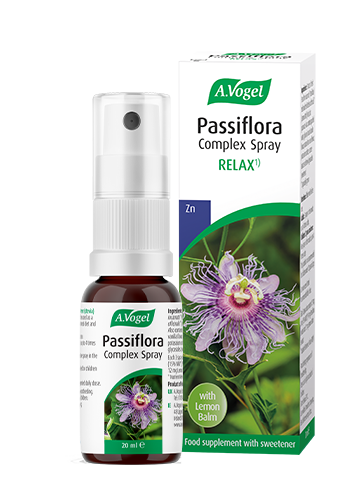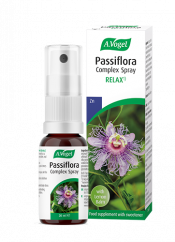Teenagers
According to the A.Vogel Teen Worries Survey, parents believe teenagers are the most difficult to raise at the age of 15, due to pressure at school and their hormones. The study of 1,000 parents of teenagers found 75% think that 13-19 are the most challenging ages in the years of raising children, with 32% believing that they were 'unprepared' for how hard it would be.
| Top 5 most stressful things about parenting a teenager | How did parents feel? |
| 1. Coping with their mood swings 2. Helping them to make important life choices, such as what GCSEs or A Levels to take 3. Allowing them to make their own mistakes 4. The fact they spend so much time on technology 5. Helping them to manage their emotions |
1. 29% of parents felt powerless to help their child with exam stress. 2. More than a quarter (27% of parents) felt more stressed about their child's exams than their teen 3. One in five (20%) said they felt unable to cope. |
We have a child morphing into an adult. Their sleep patterns change, which can cause chronic sleep deprivation that affects concentration levels and leads to poor attention span, which inevitably reflects on their school and exam performance.
Brain maturation also coincides with puberty and hormonal changes, so they lack control in the 'executive action' areas (setting priorities, planning, organising and controlling impulsive behaviour). This causes a lack of motivation, mood swings and conflicts with authority, as well as impacting on their decision-making, especially when it comes to risk-taking.
Exam time adds an additional layer of stress, but we must remember that emotions come and go, and we can all learn to be in control of how we feel. There are a number of things that parents can do to help relieve their own stress and their teenagers' during examination times.
Take control and be kind to your body and mind.
- Sleep - your and your child's best secret ally!
We know that sleep supports learning, memory, attention, emotion processing and brain development as well as immune function. Teenagers should sleep 8-10 hours a day. 72% of parents think their teenager is getting enough sleep but only 11% of teenagers actually do get enough sleep. The truth is, it is a lot harder to take tests and control our emotions when we are sleep-deprived.
There are two main reasons for having a regular sleep routine, especially when leading up to exams, but hopefully these turn into long term habits.
First of all, sleep hits the save button on new learning. When we are studying, the new information goes into our short term, vulnerable memory and at night whilst we sleep it transfers to the long term memory bank, so we can recall information better - perfect for exams! Whilst our short term memory empties, we also have a refreshed ability to learn new information after a night of good sleep! Sleep also aids creativity helping with finding solutions to previously unsolved problems. So to summarise, study in the daytime, do not lose sleep to study!
Secondly, sleep helps with processing emotional ups and downs. Sleep plays a key role in mood and emotional regulation, it helps with getting us into a better frame of mind so we can cope better.
- It is really important to separate study / sleep zones, so the sleep area is for relaxation only. Think of the ideal bedroom as a cave - cool, dark, light-free, best for sleeping. A relaxing hot bath about 1-2 hours before bedtime also helps with falling asleep faster.
- Leave electronics switched off in another room at night, even get rid of alarm clocks with digital displays that induce hyper-awareness of time. Turn off the screens at least half an hour - start small! (ideally up to 2 hours) before bedtime.
- Organise 20/10 focused study time - as teens can find it hard to organise themselves, help them timetable revision and break down work into bite-size tasks - use 'spaced learning' - 20 minutes focused study then 10 minute break, it will help them focus better.
- Herbal help – try a herbal remedy that contains Passiflora to support relaxation. Can be found as a mouth spray (ages 12+). It is really easy to use in moment of stress, and adults can use it too. Because it is a liquid form, the spray can be effective within 15-20 minutes, and has a cumulative effect if taken daily. So, taking it morning and evening is a good plan for promoting calm, and good sleep, and then the child can use it an additional twice during the day if they feel the need for a top-up. This also provides them with a good feeling of having a strategy, which gives them some 'power', which can be lacking when facing exams.
- Use your breathing to calm your mind - to feel calm, take slow, deep breaths. You can try simply breathing deeply whilst your tummy lifts up and fills with air. A more advance technique is the 4-7-8 (breathe into the count of 4, hold for 7, breathe out through your mouth to the count of 8 and repeat 3 times any time in the day. Breathing techniques, you can use anytime you feel stressed, or if you just want to fill your lungs with oxygen - it can even help with getting to sleep.
- Try the Havening Technique to calm yourself - it is easy to learn, and you can use it anywhere at times of distress. Simply rub your hands together or stroke your face to generate calming brain waves. Do this for 7-10 minutes to relax.
- Exercise – regular daily exercise will support good sleep, whilst allowing a break that also increases blood flow to the brain, energy and oxygen, which makes our brain perform better. Exercising outdoors is even better to top up vitamin D and get natural light as well as fresh air!
- Eat brain-boosting sugar stabilising foods. These include protein-rich foods which can help with greater mental alertness. Healthy food choices on exam day include eggs, nuts, yogurt, and cottage cheese. Good breakfast combinations might be whole-grain cereal with low-fat milk, eggs and toast with jam, porridge, oatmeal, or sugar-free muesli, also walnuts, blueberries, sunflower seeds, flaxseed, dried fruits, figs, and prunes. Increase B vitamin and magnesium-rich foods – try a bowl of B vitamin-rich porridge as an exam day breakfast, topped with magnesium-rich dried fruit such as chopped dates and raisins, and increase consumption of spinach, avocados, walnuts, oranges, turmeric, peppers, celery and oily fish in your diet.
- Drop stimulants - Switch sugary energy or caffeinated drinks for soothing chamomile or lemon balm teas or simply water.
- Keep hydrated - Even mild dehydration can lead to tiredness, headaches, reduced alertness and diminished concentration, so keep water with you and keep drinking it!
- Do your best – we all study in different ways, so remind them to stay focused on doing your best on the day.
- Think twice about rewards - and timings of these. One in five teens on average get bribes in exchange for exam results. As parents, we are tempted to offer rewards for good exam results but consider what the impact of these is going to be! Reward them whilst they are studying WHEN they are doing the right thing and putting the effort in! We tend to nudge them when they don't study or when they are not doing what they are supposed to be doing, but we stay silent when we notice that they are quietly studying. We should make a fuss when we notice them doing the right thing and reward the effort, not the outcome. Rewards and gifts are a lot less effective when the children receive these connected to grades - or the so called 'outcome' of what they have been working for, because it does not focus them on what is important - which is putting in the hard work.
- Emotional Support - if you can - as a parent - try to scale down your own work schedule to allow time to support your young people during the exams. Talk to them encouragingly in the morning; make a healthy snack / packed lunch; provide a favourite meal in the evening; and be visible but invisible (their support in the background) if they need encouragement.
- Go for outdoor walks with them - it's easier to talk when we are walking - we know from neuroscience that simply talking about our feelings reduces the intensity of them. Also, it is important that you can also call a friend, speak to other parents, your child's tutor - because a problem shared really is a problem halved!
- Remind them that practice is the road to success. Share your stories and learnings of recovering from failure with them. Children tend to think that they need to be perfect, and it is important to remind them of the bigger context. We need to remind youngsters that meaning isn't found exclusively in school. There's a much bigger world out there to appreciate and enjoy. If you show them and lead by example, they will follow.
- Pets - if you have pets - they have been shown to really help with calming us all down and help us reduce stress and anxiety. Going for walks with them is an additional benefit of exercise, but most importantly the unconditional love and acceptance we feel from them is something that is hard to come by! So embrace your pets.
- What would you say to your best friend in a similar situation? To give yourself perspective, remember to be kind to yourself first - if you would not say it to your friend, why be so hard on yourself?
- Think about what helps you relax - what switches you off? I often ask people this question, and few of them can tell me what truly relaxes them. Get away from browsing and do something you truly enjoy. Find a hobby and connect with your creative side if you can.
Charities
Charities such as YoungMinds.org.uk have a great deal of practical information to help support young people and families









